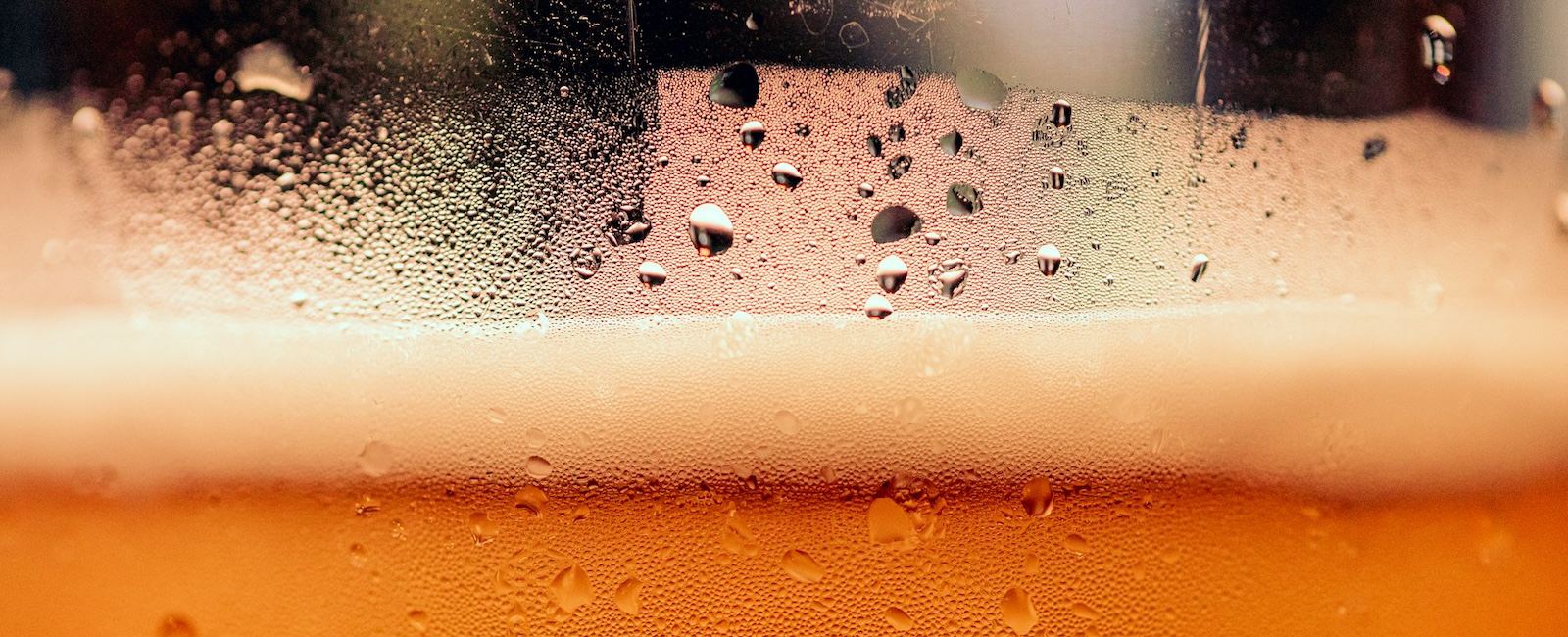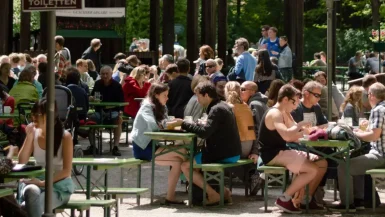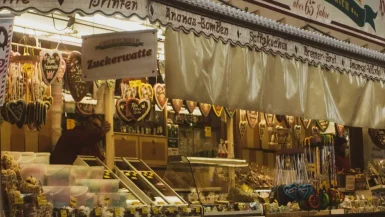Bavaria boasts global renown for its rich culture, breathtaking landscapes, and, perhaps most famously, its beer. The connection between Bavaria and beer runs deep, spanning centuries and intertwining with the region’s social, economic, and political history. This article explores the historical journey of Bavarian beer, from its ancient origins to its current status as a symbol of Bavarian identity.
Beer brewing in Bavaria began as early as the Middle Ages, when monks in monasteries crafted beer as a form of sustenance and spiritual nourishment. Over time, brewing techniques evolved, leading to the development of distinct styles such as Hefeweizen and Märzen, which became integral to local festivals and celebrations. The Reinheitsgebot, or Beer Purity Law of 1516, further solidified Bavaria’s reputation for producing high-quality beer by dictating which ingredients brewers could use. Today, the Oktoberfest in Munich serves as a testament to the region’s brewing prowess, attracting millions of visitors each year eager to experience Bavarian hospitality and craftsmanship. Ultimately, the legacy of Bavarian beer continues to thrive, reflecting the region’s deep cultural roots and communal spirit.
Bavarian Beer: Ancient Origins
Beer brewing in Bavaria dates back to ancient times, with evidence suggesting that Celtic tribes were brewing beer in the region as early as 800 BC. These early brews were quite different from what we know today, often flavored with a variety of herbs and spices. Over the centuries, the brewing techniques evolved, with the introduction of hops in the 9th century revolutionizing the flavor and preservation of beer. The establishment of the Reinheitsgebot, or Beer Purity Law, in 1516 further shaped the industry by regulating the ingredients used in brewing. This law mandated that only water, barley, and hops be used in the brewing process and is considered one of the oldest food safety regulations in the world. Today, beer lovers celebrate Bavarian beer globally for its quality, with numerous breweries crafting a diverse range of styles that reflect both tradition and innovation.
Medieval Brewing and the Rise of Monasteries
The Middle Ages marked a significant period for Bavarian beer, primarily due to the influence of Christian monasteries. Monks became the primary brewers, refining the brewing process and enhancing the quality of beer. The Benedictine monastery of Weihenstephan, established in 725 AD, is considered the world’s oldest continuously operating brewery. These monastic brews laid the foundation for Bavaria’s brewing traditions.
In addition to perfecting brewing techniques, monks also played a crucial role in the development of beer styles, experimenting with various ingredients and fermentation methods. Their commitment to quality and consistency set high standards that would influence future generations of brewers. Moreover, the monasteries became social hubs, where villagers gathered to enjoy the monks’ beer, fostering a sense of community and celebration. The influence of the church on brewing practices helped establish beer not only as a staple beverage but also as a vital part of Bavarian culture. As a result, the legacy of monastic brewing continues to resonate in modern Bavarian beer festivals and traditions, showcasing the region’s rich brewing heritage.
The Reinheitsgebot: The Beer Purity Law of 1516
One of the most pivotal moments in Bavarian beer history was the enactment of the Reinheitsgebot, or Beer Purity Law, in 1516 by Duke Wilhelm IV. This law stipulated that beer could only be made using three ingredients: water, barley, and hops. Yeast was later added to the list once its role in fermentation was understood. The Reinheitsgebot aimed to ensure the quality and safety of beer, preventing the use of harmful additives and preserving the purity of Bavarian brews. This regulation is still in effect today, symbolizing the region’s commitment to brewing excellence.
The impact of the Reinheitsgebot extended beyond Bavaria, influencing brewing standards throughout Germany and even across Europe. It not only shaped the brewing industry but also helped establish a unique cultural identity for Bavarian beer. Many breweries proudly display their adherence to this law on their labels, emphasizing their dedication to traditional brewing methods. The Reinheitsgebot has also fostered a sense of pride among Bavarians, who view their beer as a reflection of their heritage and craftsmanship. As a result, it has become a vital aspect of Bavarian festivals, including the world-famous Oktoberfest, where the purity and quality of beer take center stage.
Industrialization and the Growth of Breweries
The 19th century brought industrialization to Bavaria, significantly transforming the beer industry. Technological advancements such as refrigeration and the development of the steam engine enabled year-round brewing and the production of lagers. This period saw the rise of many famous Bavarian breweries, including Spaten, Paulaner, and Hofbräuhaus, which expanded their reach beyond regional borders. As these breweries flourished, they began to adopt marketing strategies that appealed to a broader audience, contributing to the growing popularity of Bavarian beer across Europe. Furthermore, the establishment of beer halls and gardens during this time created vibrant social spaces where people could gather, celebrate, and enjoy their favorite brews.
The annual Oktoberfest, which began in the early 19th century, became a symbol of Bavarian culture and a major event that showcased the region’s brewing heritage, attracting millions of visitors each year. This blend of tradition and innovation laid the foundation for Bavaria’s reputation as the epicenter of German brewing, influencing beer culture around the world.
Oktoberfest: A Celebration of Bavarian Beer
No discussion of Bavarian beer is complete without mentioning Oktoberfest. First held in 1810 to celebrate the marriage of Crown Prince Ludwig and Princess Therese, Oktoberfest has grown into the world’s largest beer festival, attracting millions of visitors annually. The festival features traditional Bavarian music, food, and, of course, beer, showcasing the region’s brewing heritage. Each year, organizers erect large tents where various breweries serve their finest beers, allowing attendees to sample a wide range of local brews. Traditional folk dances and performances enhance the lively atmosphere, immersing visitors in Bavarian culture. Beyond beer, Oktoberfest offers a plethora of culinary delights, including pretzels, sausages, and roast chicken, ensuring that there’s something for everyone to enjoy. As the event unfolds, the colorful parades and vibrant costumes create a festive ambiance, making it a memorable experience for locals and tourists alike.
Modern Brewing and Craft Beer Movement
In recent decades, the global craft beer movement has also influenced Bavaria. While traditional brewing methods remain highly valued, many Bavarian breweries have begun experimenting with new styles and flavors. This blend of tradition and innovation ensures that Bavarian beer continues to evolve while honoring its storied past.
Local craft breweries are now collaborating with international brewers, creating unique hybrids that fuse Bavarian heritage with global influences. Seasonal beers have become increasingly popular, with breweries offering limited-edition brews that celebrate local ingredients and festivals. Furthermore, the rise of microbreweries has introduced a sense of community among beer enthusiasts, fostering events where people can sample and appreciate diverse brews. As a result, beer gardens are embracing this change, featuring a rotating selection of craft beers alongside the classic lagers. Ultimately, this dynamic landscape enriches Bavaria’s reputation as a top destination for beer lovers, making it a vibrant hub for both tradition and modern creativity.
The Economic Impact of Beer in Bavaria
Beer is not just a cultural symbol in Bavaria; it is also a significant economic driver. The region is home to over 600 breweries, producing more than 4,000 different beers. The beer industry supports thousands of jobs and contributes substantially to the local economy through tourism, especially during events like Oktoberfest and Starkbierfest (Strong Beer Festival). Additionally, the popularity of Bavarian beer has led to the growth of microbreweries and craft beer movements, attracting even more visitors eager to taste unique local brews. These festivals not only showcase traditional beer but also highlight Bavarian cuisine, further enhancing the economic impact on local restaurants and vendors.
Furthermore, the global appeal of Bavarian beer has fostered international partnerships, with breweries exporting their products worldwide, solidifying Bavaria’s reputation as a beer capital. Finally, educational initiatives around brewing techniques and beer culture are being implemented, ensuring that future generations appreciate and uphold this cherished tradition.
Cultural Significance and Traditions
Beer in Bavaria is deeply embedded in the social fabric of the region. Beer gardens, or Biergärten, are a quintessential part of Bavarian life, serving as communal spaces where people of all ages and backgrounds gather to enjoy a Maß (liter) of beer and traditional Bavarian food. These gardens originated in the early 19th century and remain popular today, embodying the region’s convivial spirit. Families often bring picnic baskets filled with homemade delicacies, encouraging a sense of community and shared enjoyment. During the warmer months, the atmosphere is vibrant, with laughter, music, and the clinking of glasses echoing through the air.
Additionally, many beer gardens host local events, such as live music performances and festivals, which further enrich the cultural experience. This lively environment not only showcases Bavarian hospitality but also highlights the region’s rich brewing heritage, with many establishments offering a selection of locally crafted beers that reflect the unique flavors of Bavaria.
Conclusion – Bavarian Beer
The history of Bavarian beer is a testament to the region’s dedication to brewing excellence and its ability to adapt and innovate over centuries. From ancient Celtic brews to the strict regulations of the Reinheitsgebot, and from the industrial boom to the modern craft beer movement, Bavarian beer has remained a central aspect of the region’s identity. Whether enjoyed in a historic beer hall or a sunny beer garden, a Bavarian beer is not just a drink; it is a taste of history, culture, and tradition.
Bavaria’s relationship with beer is a rich tapestry woven with tradition, innovation, and a deep appreciation for quality. As we raise our glasses to this storied history, we celebrate not just the beer itself but the enduring spirit of Bavaria that continues to brew excellence with every pint. Prost! The unique flavors found in Bavarian beer, from the malty sweetness of Dunkels to the crispness of Hefeweizens, showcase the region’s diverse brewing techniques. Each style tells a story, reflecting the local ingredients and brewing traditions passed down through generations. Moreover, beer festivals, such as Oktoberfest, highlight the communal joy and cultural significance of beer in Bavarian life, drawing visitors from around the globe to partake in the festivities. As new craft breweries emerge alongside traditional ones, Bavaria maintains its reputation as a beacon of brewing heritage, ensuring that the love for beer remains as strong as ever.
Book recommendations *:
*This Blog contains referral links, which are marked with *. This means no additional costs for you, but: If you buy something through one of these links, I will receive a small commission. This helps me to run this site and supports the blog and my work. Thank you very much!



